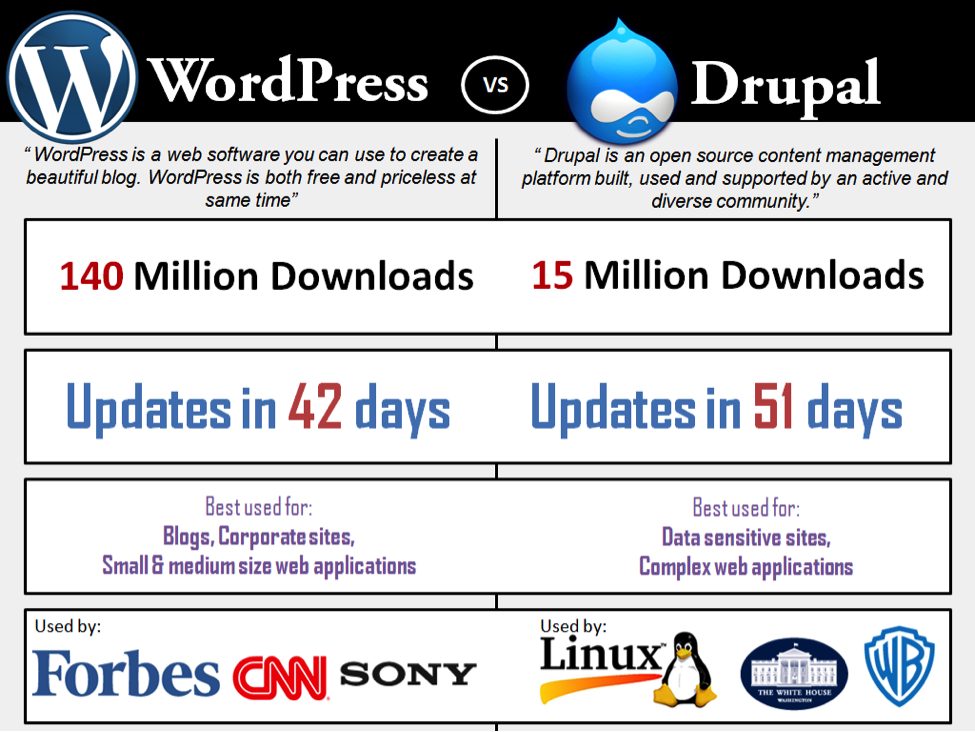When it comes to developing a CMS based website or web application, WordPress and Drupal are the two biggest players in the market. Although WordPress has gained a lot more popularity over the years (there are over 10 times WordPress users as compared to Drupal), but the question is- Is it 10 times better?
Let’s weigh the two platforms according to different criteria.
Ease of Use
A starting point to decide would be how easy the site is to use. If your website development skills are limited and you need to get to manage your CMS straight away, there’s no point in choosing Drupal as the back end is a little complicated as compared to WordPress’ user-friendly one. The WordPress WYSIWYG editor , especially created for blogging, enables you to start blogging within minutes.
Community
Another advantage WordPress has is the great community where people are constantly contributing with new plugins and themes and are ready to help you out with any queries. This is particularly helpful for budding developers and encourages them to be more active in the community. Drupal too has a community and though it can’t be called small; it’s just smaller than the one WordPress has.
Resources
Drupal developers are less easy to come by and thus are more expensive as compared to WordPress developers. Mastering Drupal is more difficult and usually Drupal developers come with more experience and a bigger pay check. Plugins and themes for both are free to download, but the premium plugins and themes for Drupal cost a lot more than WordPress.
Customization Options
WordPress is easier to customize as it has nearly 37,000 plugins and a variety of free and premium themes which offer plug and play functionality. Drupal customization requires a higher level of programming.
Security
Drupal wins this round hands down. In WordPress, as the plugin gets old they are vulnerable to security threats and also, hackers target WordPress because it is so popular whereas Drupal has enterprise-level security and provides in-depth security reports, hence why you’ll find governments using it. Drupal can support anything from a one-page static site to complex applications that have thousands of pages and thousands of readers reading those pages simultaneously.
Search Engine Friendliness
Although both WordPress & Dupal have SEO built into them, Drupal was built specifically to be search engine friendly. Because of the caching feature, Drupal sites can be load faster and Google prefers faster sites. Also, rendering mobile view is an area of focus for Drupal specially in the latest versions. WordPress too has a number of plugins that can enhance Search Engine Optimization and mobile view/responsiveness.
Ultimately, when deciding which CMS to use, you must consider the following questions:
- How many different page templates or content types will you need?
- Do you require different user roles and permissions?
- Do you require enterprise level security?
- Do you have any budget or time constraints? Normally, it takes twice as long to develop a Drupal site as compared to WordPress.
Have you had experience of WordPress and Drupal and agree/disagree with the comparison? Let me know in the comments below!





